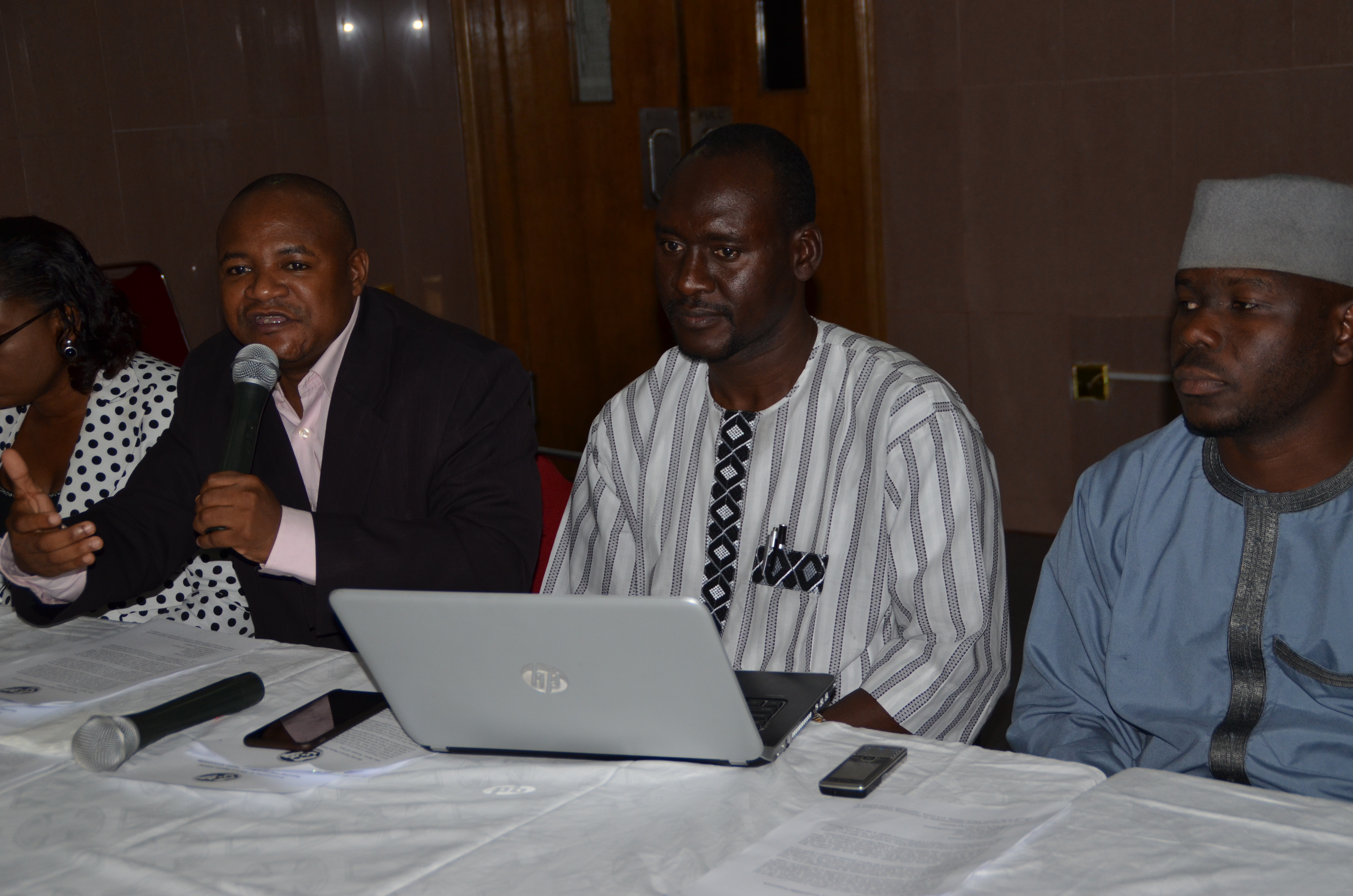The Accountability for Maternal, Newborn and Child Health in Nigeria (AMHiN) a national coalition of NGOs on Tuesday, November 18th, 2014 in Abuja took a one year stock of Nigeria’s Country Accountability Framework. It was a proactive move that provided a simple score card on government towards improving accountability in the health sector.
The score card termed ‘Reporting Progress of Nigeria Country Accountability Framework’ is in line with the 2010 UN Secretary-General’s Global Strategy for Women’s and Children’s Health which aims to save 16 million lives by 2015 in the world’s 49 poorest countries. From that the Commission on Information and Accountability for Women’s and Children’s Health (CoIA) emerges to ensure that every woman and child receive the highest attainable standard of health and to achieve equity in health.
The accountability framework covers national and global levels and comprises three interconnected processes aimed at learning and continuous improvement: monitor, review and act. To support African countries with skills and information in tracking progress, World Health Organisation convened a multicounty workshop to strengthen results and accountability for women and children’s health and the health sector, in Harare, Zimbabwe October, 2012? Nine African countries including Nigeria were in attendance. Following the Harare workshop, a national workshop, was convened in April 2013, resulting in the development of a Country Accountability Framework (CAF). The meeting focused on the review and finalization of Nigeria’s CAF and priority actions in line with seven thematic areas:
- Advocacy and Outreach
- Review Processes
- Monitoring of Resources
- E-Health and Innovation
- Maternal Death Surveillance and Response
- Monitoring of Results
- Civil Registration and Vital Statistics
In order to facilitate transparency and accountability for implementing, tracking progress and planning on the national MNCH roadmap, AMHiN reviewed the framework and came up with the scorecard by making reference to the baseline scores developed in April 2013. Key documents were reviewed as well as key informant interviews conducted.
Some of the reasons that also necessitated the report is that fact that according to demographic & health survey (DHS) 2013 estimates, Nigeria has approximately 576 maternal deaths per100, 000 live births and contributes about 14% of the global burden of maternal deaths. The infant mortality rate of 69 per 1,000 live births are steadily declining, but remain unacceptably high, with the Millennium Development Goals unlikely to be met. Despite significant financial and technical investments in the health sector in Nigeria, progress to improving health has been slow. Many key stakeholders including government officials are beginning to acknowledge accountability as the catalyst for change.
Some of the Scorecard Key Findings are as follows;
Nigeria’s Parliament are expected to establish a transparent accountability mechanism for Reproductive, Maternal, Newborn and Child Health (RMNCH), a multi-stakeholder committee that reports to parliament. The scorecard has shown that Parliament has not established a mechanism which does not augur well as it is aimed to strengthen over sight function to the executive. The report recommended that legislatures should be supported to establish accountability mechanism on RMNCH especially on financing and availability of quality data.
The Nigerian government review process in health sector was scored low. Although mechanisms are in place to translate results of meeting into planning processes and resource allocation and decisions at all levels. However budget approvals rarely match recommendations made at review meetings. The report recommended strengthening the use of review results for planning purposes, resource allocation and release.
With respect to ‘Monitoring of Resources’ the target was to have a formal governance mechanism for National Health Account Framework that specifies coordination, management, national indicators and budget for implementing health accounts and tracking resources on key policy issues such as financial flows for RMNCH. The report revealed that although there are terms of reference (ToR) for the governing structure, but they are poorly adhered to and have not been as active since 2010. There is a system to support tracking of expenditure at national level, though not used at sub-national levels. Also sustained ownership of the system by the government has been threatened by lack of funding and no sub-accounts for MNCH. It is recommended that TORs should be fully implemented and ensure inclusiveness of all relevant stakeholders.
Under ‘E – Health and Innovation’, the target was to have a national e-Health strategy and/or policy which is found to be in existence. The report recommended roll-out of national e-health strategy across Nigeria.
Under ‘Maternal Death Surveillance and Response’ the target was for death notification, to be part of the national policy within 24 hours. The report revealed that the national policy does not have provision for notification of maternal deaths within 24hrs and recommended the insertion of death notification in the national guidelines and tools to ensure maternal death is a notifiable event.
With respect to ‘Monitoring of Result’, Nigeria has scored well as it has a comprehensive Monitoring &Evaluation Plan for the National Health Strategy that specifies indicators, data sources, analysis, dissemination and roles and responsibilities. It is however recommended that we should ensure buy-in of all stakeholders and continue to monitoring its implementation.
The component of ‘Civil Registration and Vital Statistics’ aims to ensure that hospitals be it public or private are reporting death in a timely manner. The public institutions were found to be reporting although not complete and private institutions’ reporting was poor.
In conclusion, this scorecard serves as a rider for performance monitoring with the hope that before 2015 review is done, we will record some progress in the implementation of the country accountability framework.
This article was 1st published by Dr Aminu Magashi Garba in Daily Trust Newspaper of Tuesday 2nd Dec 2014 (healthweekly@yahoo.com)




